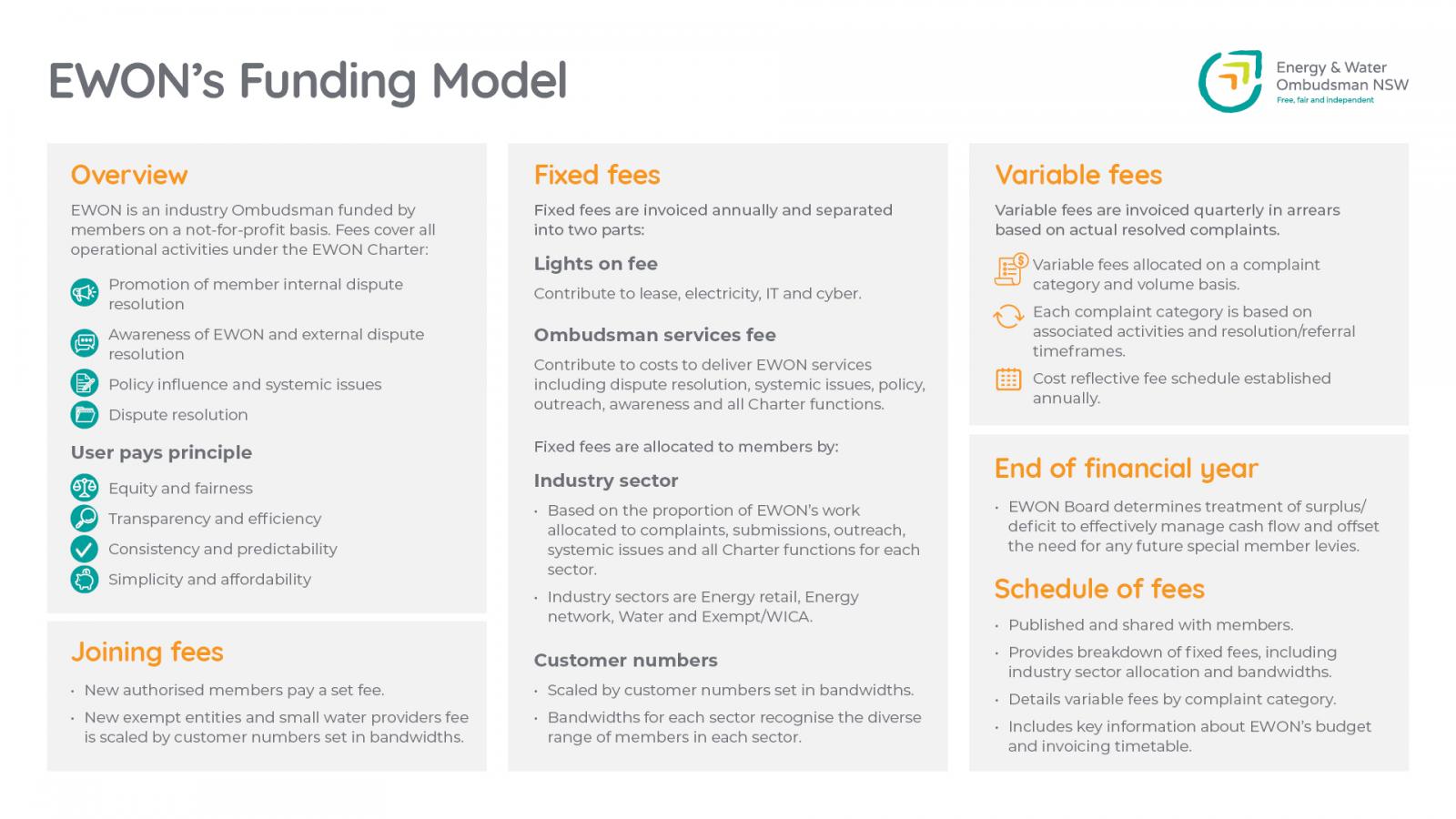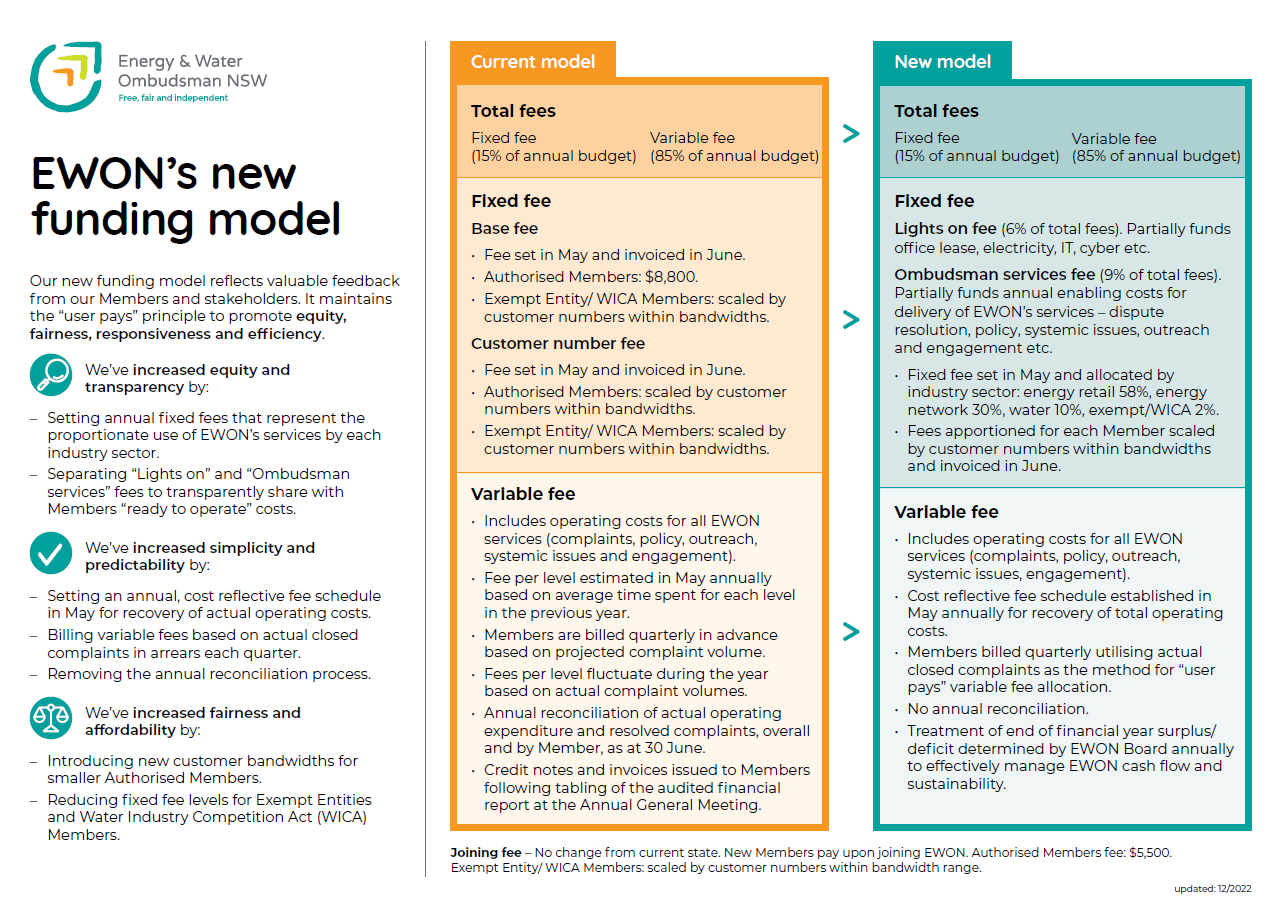Background
Since FY21, we have been working to reform the EWON funding model. As part of the expansion of EWON’s jurisdiction to include exempt entities in 2018, the EWON Board committed to undertaking a funding model review within three years. It was also a recommendation of the Independent Review of EWON in 2019 – the reviewer having noted the increasing diversity of EWON membership.
The purpose of the project has been to establish a ‘fit for purpose’ funding model which ensures the sustainability of EWON’s operations, in accordance with the EWON Constitution and Charter.
Important considerations of the project included acknowledging the increasing diversity of EWON’s membership and ensuring energy and water consumers continue to have access to free, fair and independent dispute resolution.
The new model
In October 2022, the EWON Board approved the new funding model, to commence in FY24. This culminated the work undertaken since the Board established a Board Working Group in early 2021, to support the in-house project team. In December 2021, following a competitive tender process, the Board engaged KPMG to work with us to develop funding model options and facilitate extensive consultation with members and stakeholders. The Board undertook periodical discussions with KPMG and the project team, leading up to a Board Governance workshop in August 2022, when impacts, risks and KPMG’s recommendations were fully explored.
In coming to the decision in October 2022, the Board considered KPMG’s options and preferred model, detailed member impact analysis, as well as risk/sensitivity and cashflow impacts on EWON. The Board also committed to reviewing the effectiveness of the new model within three years.
Key features
Key features of the new model include:
-
Billing members quarterly on actual closed complaints in arrears - no more complaint projections and no reconciliation at the end of the financial year.
-
Setting an annual cost reflective variable fee schedule for delivery of EWON’s services – with no changes during the year.
-
Industry sector differentiation in fixed fees - fairly apportioned fixed fees across sectors based on their demand for EWON services.
The key features of the new model are detailed below, including a comparison to the current model. (Click to view as PDF)




.png)
